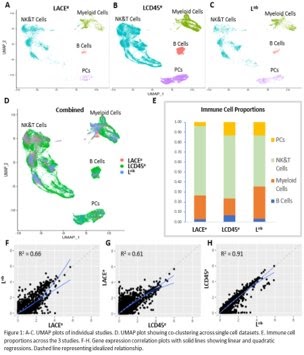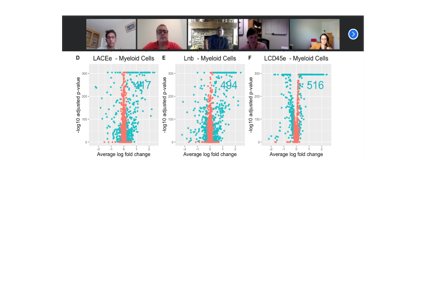USC Research Lab
By Paranay Singh '23
This summer I worked at USC’s Transplant Research Lab headed by Dr. Juliet Emamaullee, a transplant surgeon-scientist and assistant professor of clinical surgery.
Under the supervision of Dr. Emamaullee, my summer research was on single-cell RNA sequencing (scRNA-seq). scRNA-seq is a novel method that could very well be the future of medical science. It combines cell biology with computer science in order to analyze thousands of cells at a single-cell level, allowing us to observe what genes are expressed, at what proportions, and how they differ across diverse samples. Researchers and doctors can use scRNA-seq to better understand how disease manifests in order to find cures. Consequently, scRNA-seq can have significant and extensive impacts worldwide. However, before we find cures using scRNA-seq, we must demonstrate that scRNA-seq results are trustworthy.
Our project sought to answer if preanalytical variables could affect the end results of scRNA-seq studies by overexpressing or repressing genes within cell types. To answer our research question, I analyzed three scRNA-seq human liver datasets using the package Seurat within the programming language R. I learned and used various skills including R and data analysis techniques such as dimensionality reduction, clustering, and differential gene expression. Moreover, I utilized types of data visualization including heatmaps, volcano plots, and correlation plots.

It was surprising to see how seemingly trivial preanalytical variables could lead to notable differences in results. Due to the scarce and expensive nature of scRNA-seq, we must be careful in the process of preserving liver tissue and collecting their scRNA-seq data. Our research and analysis illustrate the need for a standardized procedure for the treatment and preservation of liver cells before sequencing. This project’s work, with me as co-author, is being prepared as a manuscript for publication and has been submitted as an abstract to the Academic Surgical Congress. Knowing that my research will contribute to scRNA-seq studies publishing trustworthy data that will lead to new discoveries and bolster our understanding of the biology of a cell is truly an endearing and motivating feeling.
During this internship, there were a couple of times where I felt lost not knowing how to move forward. If you were to show me the results of our research at the beginning of the summer, I would deny that future me had achieved these results. However, I learned that it is during these moments of uncertainty that one must dig deep and persist.